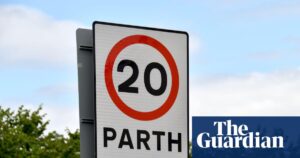
Drivers could be handed a share of between £9bn and £18bn in compensation next year, after the City regulator said it would consult on a redress scheme for consumers affected by the car finance scandal.
The Financial Conduct Authority (FCA) said on Sunday it plans to launch the redress scheme in 2026, with consumers “starting to receive compensation next year”.
“At this stage, we think it is unlikely that the cost of any scheme, including administrative costs would be materially lower than £9bn and it could be materially higher,” the FCA said in a statement.
The watchdog said that although some scenarios put the total cost as high as £18bn, it considered estimates in the mid point of this range to be “more plausible”.
In most cases individuals would receive less than £950 in compensation, it added.
The regulator will start consulting on the compensation scheme by October, and plans to include motorists who were harmed by discretionary commission arrangements .
These discretionary commissions, which were banned in 2021, inflated the cost of car financing by controversially allowing car dealers to earn higher commissions if they put customers on loans which earned higher interest rates for the lender.
The watchdog will also consult on broader motor financing issues where motorists may have been harmed by egregious or unfair commission arrangements.
It comes after a supreme court ruling on Friday largely sided with finance companies on Friday, but upheld a single case in which judges said the relationship between the lender and borrower had been “unfair.”
The supreme court case was brought by two specialist lenders, Close Brothers and South Africa’s FirstRand, in an attempt to challenge the three consumers who collectively won the court of appeal case in October.
after newsletter promotion
Justices were asked to review the court of appeal ruling, which suggested nearly all commission arrangements – unless plainly disclosed and issued under full consent of the consumer – were unlawful.
If upheld, it would also have meant millions of people who bought a car with finance could be owed compensation at an estimated cost of up to £44bn to lenders including Santander UK, Close Brothers, Barclays and Lloyds.
The sum would have almost rivalled the payment protection insurance saga, which cost banks about £50bn.








